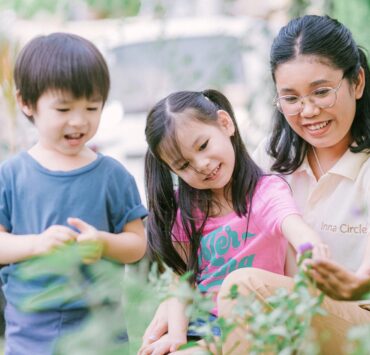Why is it difficult to get Filipino food in Europe? And how can we help promote Pinoy food to Europeans? An exclusive interview with Heuschen & Schrouff, the biggest Asian and Filipino food distributor in Europe.
Do you ever wonder why some Filipino products disappear from the shelves of your favorite sari- sari stores in Europe? Or why are some of our beloved Filipino brands available in Europe while others are not?
The European Union probably has the strictest standard when it comes to food regulation. These regulations are aimed at protecting consumer health and maintaining high standards of food production, labeling, and distribution, and to ensure the safety and quality of food products available in the market. But this is especially challenging when it comes to the import and distribution of Filipino products in Europe.
Stefan Theuns, Senior Tactical Purchaser at Heuschen & Schrouff, the biggest wholesale importer and distributor of Asian and Filipino food products in Europe, understands this problem very well.
“We see a lot of difficulties not because of Filipino food suppliers but because of demanding regulations in Europe that are difficult for Filipinos to meet. That is
also why we have had more assortment before that are deteriorating because of this legislation.”, Stefan explains during TFEM’s exclusive interview at the 2023 Anuga Food Fair in Cologne.
Heuschen & Schrouff is continuously assessing the quality of their assortment
to keep up with the changing regulations.
“We always want to be the best in class because we want to send our products to all countries in Europe. We want to make sure that the shop owners that buy from us buy compliant products. That’s important for them to know.”
Stefan Theuns, Senior Tactical Purchaser, Heuschen & Schrouff


Choosing the highest quality
This poses a problem when it comes to meeting the demand for Filipino food products in Europe.
“Filipinos know their products and they also do not care a lot if it is compliant to the European market or not. They have used it for decades already. That makes it difficult because a lot of our friends and competitors are not that into those standards. Sometimes it is also hard to explain (to store owners) that there are some things we cannot import because of the regulations, while they still can buy
them from our competitors. Everything we have in our assortment meets the best possible standards.”
With 60 years of experience, Heuschen & Schrouff has established itself as a reliable and trustworthy wholesaler of high-quality Asian products in the European market. They not only comply with European food regulations but also go the extra mile to ensure that their products meet the highest quality standards.
We try to make the basis right first, make the needed products available as much as possible. We are now adding more products that are nice to have, which people are looking for in the Filipino shops but also in a regular Asian shop.‘‘
Stefan Theuns, Senior Tactical Purchaser, Heuschen & Schrouff
The sourcing process of Heuschen & Schrouff involves strict quality control procedures, starting right from the selection of suppliers and manufacturers. They carefully choose partners who adhere to food safety and quality regulations in their respective countries. They also implement regular on-site inspections and audits to ensure that the production facilities meet their stringent criteria.
Heuschen & Schrouff products also pay meticulous attention to packaging and labeling. European regulations demand transparent and accurate labeling, including ingredients, nutritional information, and allergen declarations. Heuschen & Schrouff ensures that all their imported products meet these requirements, allowing their customers to make informed choices and accommodate various dietary needs.

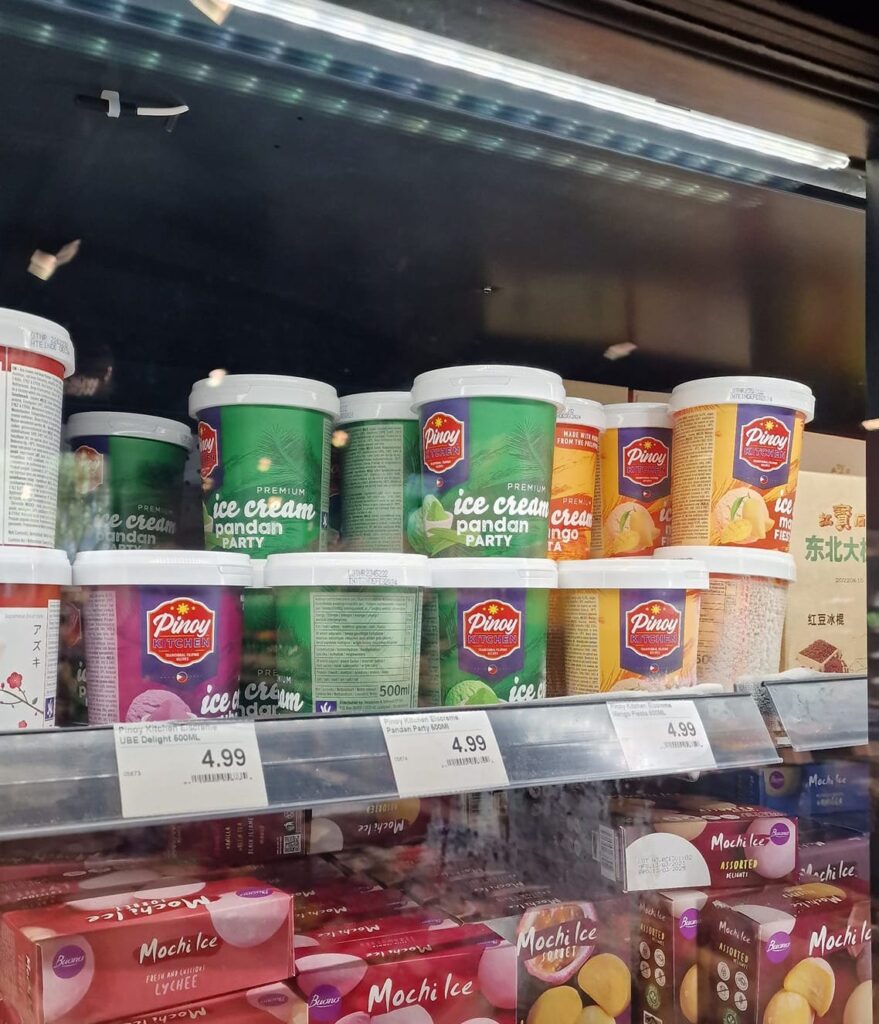
Meeting the demand gap
One of the strategies that Heuschen & Schrouff employed was to develop products that are not allowed in the European Union, like meat products. Four years ago, they started developing Pinoy Kitchen, a Filipino brand that produces meat products
like Longganisa, Tocino, Filipino hotdogs, and even Filipino- flavored ice cream.
Aside from sourcing their meat in the Netherlands, what Pinoy Kitchen’s products use only EU-approved ingredients. For example, they use natural ingredients like red beets as food coloring, making their frozen meat assortment a healthier choice for consumers.
“Meat products from the Philippines are not allowed but Filipino customers are still looking for those products. We asked our suppliers from the Philippines, can you produce it in Europe? That took time, and it is difficult to find the right producers according to your quality standards. But we saw the gap in the market growing bigger and bigger so we developed Pinoy Kitchen as a brand. We created meat products out of it and we produced it in Europe, using Filipino recipes while meeting the European food standards. We took the first step and it was quite a success.”
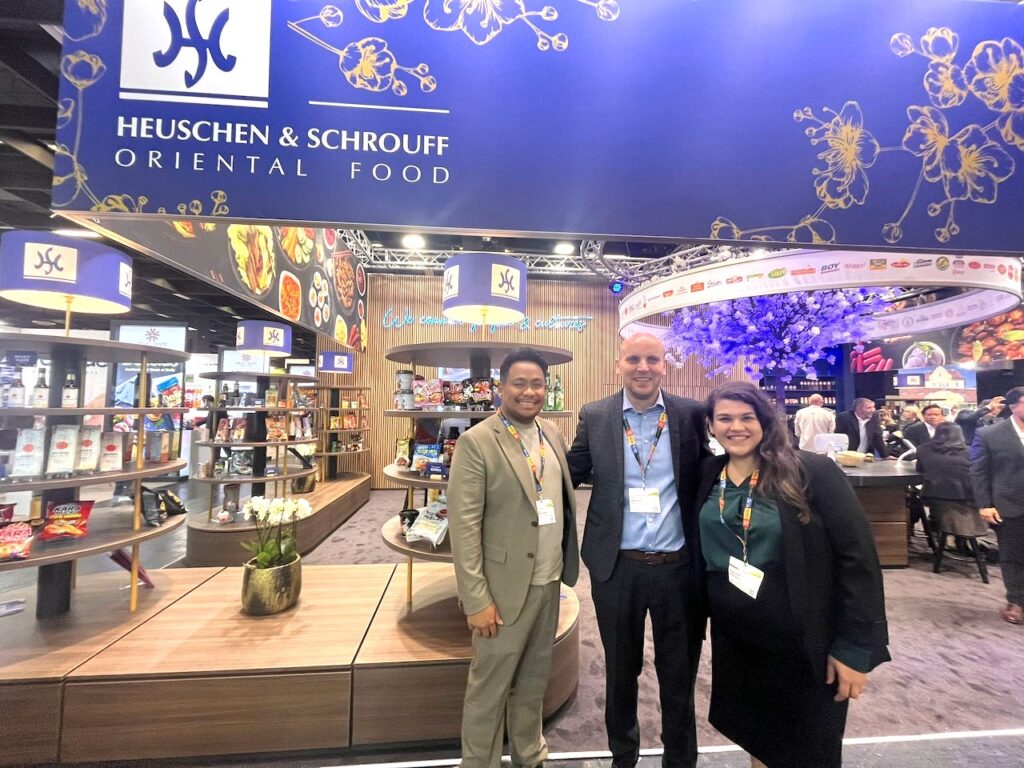
More Filipinos on the team
After the slump in the supply of Asian food products due to the Covid-19 pandemic and the resulting supply chain problems, Stefan is positive that 2024 will be a booming year for Asian and Filipino food products. He is expecting a double digit growth in the years to come.
It’s high time for Filipino food to take its rightful place on the culinary map. I am committed to bringing more varieties of beloved Filipino food brands to the European market while meeting the needs of the Filipino community.
Rhafael Antonio, Business Development and Expansion Manager, Heuschen & Schrouff
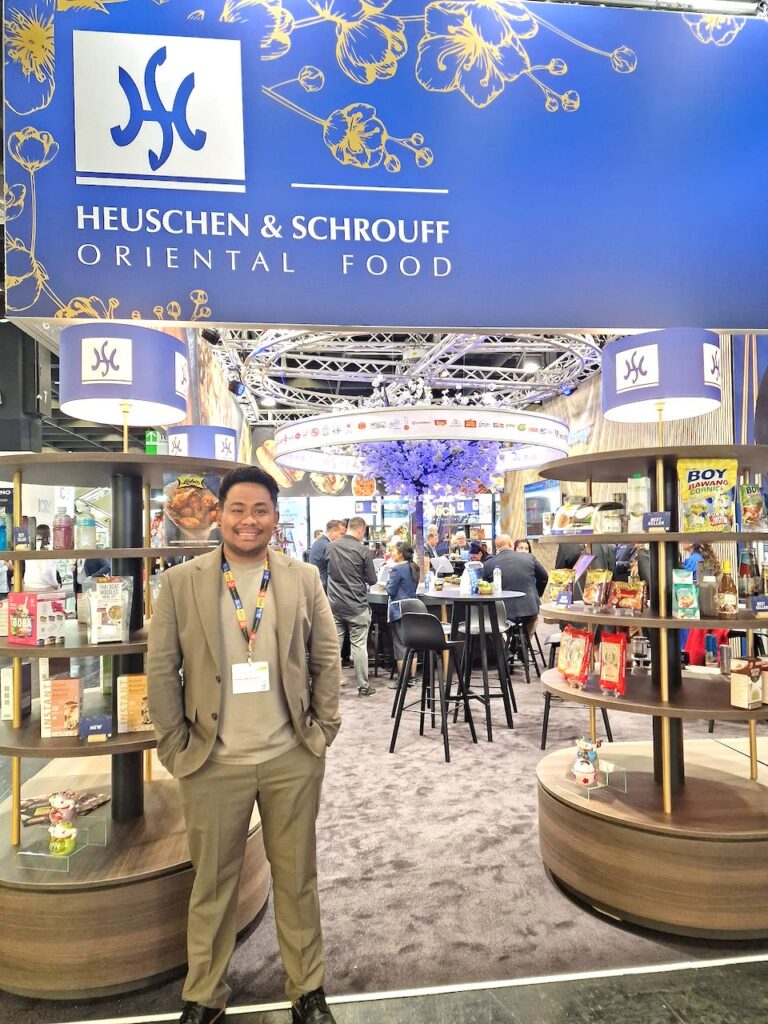
In anticipation of this development and to expand their assortment of Filipino and other Asian products, Heuschen & Schrouff is hiring more people, including Filipinos.
“We try to make the basis right first, make the needed products available as much as possible. We are now adding more products that are nice to have, which people are looking for in the Filipino shops but also in a regular Asian shop. We also try to educate the shop owner on what Filipino products he will need to supply to his customers.”
Heuschen & Schrouff recently got food developer Rhafael Antonio onboard as Business Development, Market Expansion and Strategic Planning Expert. His aim is
to strengthen the presence of Filipino food in the mainstream European food market. Rhafael is hoping to bring a positive impact to the Filipino food industry.
“I am partnering with Heuschen & Schrouff Oriental Food, as we endeavor to strengthen Filipino cuisine in Europe. It’s high time for Filipino food to take its rightful place on the culinary map. I am committed to bringing more varieties of beloved Filipino food brands to the European market while meeting the needs of the Filipino community. It’s a significant responsibility, but I am fully prepared and eager to take on this challenge,” said Rhafael.
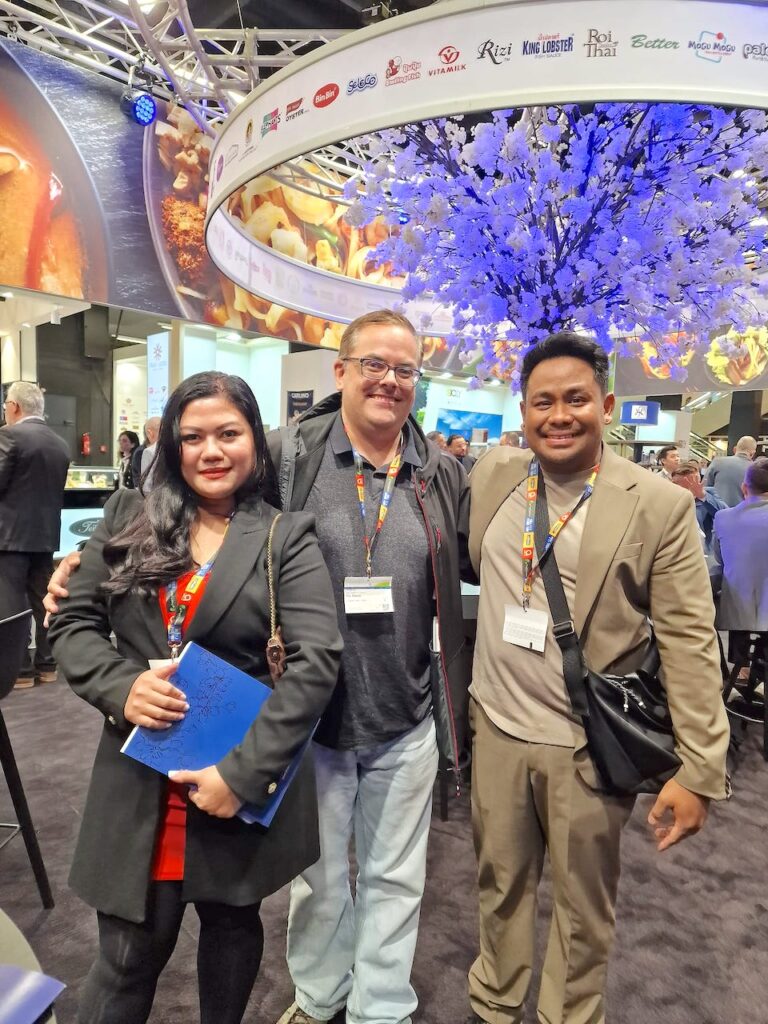
Paving the path for Filipino food
Are Filipino products capable of going into European mainstream retail in the next five years?
Stefan does not think so, at least not in the coming years. However, he pointed out the big demand in the ethnic food market which has not been filled yet.
“First of all, you need to convince the buyers. They need to understand the products you are selling. If you come with longganisa for example, they don’t know anything about it. So I think we can double the business easily just by serving more ethnic shops and educating them. We still think that we are not even close to filling the gap in the ethnic shops,” he explained.
Stefan pointed out how Korean food has become popular because of K-Pop and Korean noodles. Now they are seeing an increasing demand for Korean products.
He emphasized that education is key. Collaboration with different stakeholders such as Philippine embassies, other Philippine government agencies, the media and especially Filipinos in Europe in promoting Philippine tourism, culture and food will pave the way for Filipino food products to become more popular, and more accessible in Europe.
“We have to smoothen the path first.”




